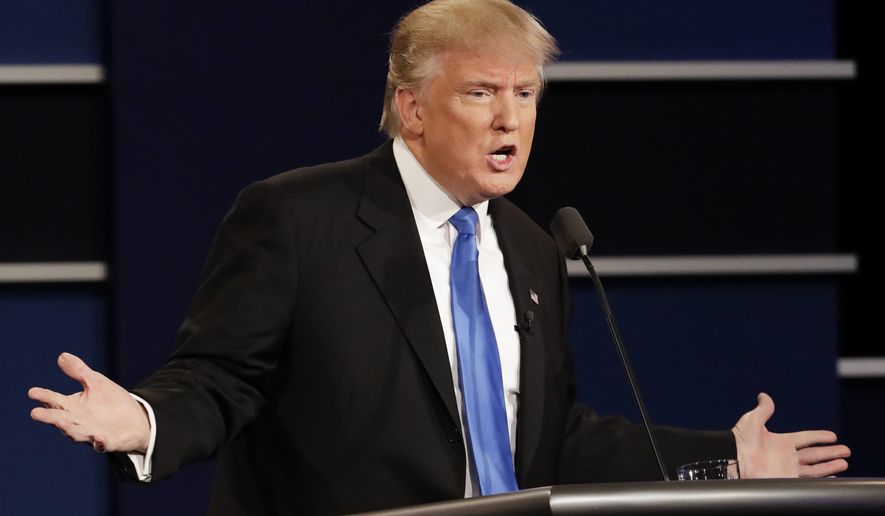Two major news organizations were quick to say their online polls conducted after the first presidential debate between Hillary Clinton and Donald Trump are not scientific. But both surveys found that Donald Trump was perceived as the winner by respondents.
“The presidential debate is over and both candidates have made their case to the American voter. We heard their positions on homeland security, the economy and the future direction of the country. Now it’s your turn to tell us who the big winner was,” CNBC asked in their poll.
A current total of 960,300 people voted. The results: 67 percent said Mr. Trump won the bout, 33 percent voted for Mrs. Clinton.
“Hillary Clinton and Donald Trump faced off at their first presidential debate Monday. Who do you think won?” asked Time in their version.
Over 1.6 million people responded. The results: 55 percent sided with Mr. Trump, 45 percent with Mrs. Clinton.
An online poll from The Washington Times and another from the Drudge Report also found that Mr. Trump was the victor. There were many more, however.
A Daily Mail analysis of 19 instant “snap” polls conducted online found that Mr. Trump won 17 of them “by a landslide”, the British news organization said.
“Online reader polls like this one are not statistically representative of likely voters, and are not predictive of the debate outcome will effect the election. They are a measure, however imprecise, of which candidates have the most energized online supporters, or most social media savvy fan base,” Time magazine explained in its survey.
“Many in the media will probably declare Clinton the winner of last night’s first debate, but many voters will suspect that those articles were written long in advance and tune them out. The polls should tell us very quickly who the winner really is,” writes Fran Coombs, managing editor of Rasmussen Reports surveys, which will reveal their findings about the debate and its after-effects on Thursday.
• Jennifer Harper can be reached at jharper@washingtontimes.com.




Please read our comment policy before commenting.